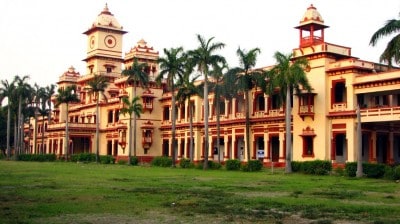Varanasi, March 14 : The department of chemical engineering and technology at the Banaras Hindu University (BHU) , has developed a membrane reformer prototype for producing ultra-pure hydrogen from methanol.
Rajesh Kumar Upadhyay of the department and his team said that it is the first such prototype in India and there are no such commercial units worldwide.
Upadhyay said that the prototype isolated 99.999 per cent pure hydrogen from a mere 15 ml/minute methanol to 13 litre/minute and succeeded in producing 1 KW of power on integration with a hydrogen fuel cell.
The Centre has recently launched the National Hydrogen Energy Mission to promote production of hydrogen from green energy resources.
Hydrogen is said to be the top clean fuel with its high energy density and versatility to replace fossil fuels.
Upadhyay said this prototype would significantly reduce fossil fuel use and carbon footprint.
Due to the compact unit, it can be used for on-site production of ultra-pure hydrogen.
It also reduces storage and transportation safety hazards associated with hydrogen and can also be used to power mobile towers besides replacing diesel-based generators.
The prototype can also be used to charge electric vehicles.
The research project was funded by union government’s department of science and technology.
The entire unit is manufactured in India and all components like methanol-reforming catalysts and hydrogen-selective membranes were synthesized at the chemical engineering lab in the institute.
Upadhyay said the team was working on developing mobile electric vehicle chargers.
“This prototype can be installed in an electric vehicle and integrated with a hydrogen fuel cell to generate electricity for charging. The electric vehicle owner can use an app-based module to use the charging facility. This will also reduce the queue at charging stations,” he added.
Such units can also be installed at fuel stations for producing hydrogen.
IIT (BHU) Director Pramod Kumar Jain said the membrane reformer prototype promotes the ‘Make in India’ and ‘Atmanirbhar Bharat’ initiatives of the government.
“Use of hydrogen as energy source doesn’t increase carbon dioxide in environment. However, the major challenge in commercialization of hydrogen energy is to develop efficient and safe methods of production, separation, transport and storage since it is highly combustible. The on-site generation of hydrogen significantly reduces this threat,” Jain said.
Disclaimer: This story is auto-generated from IANS service.

